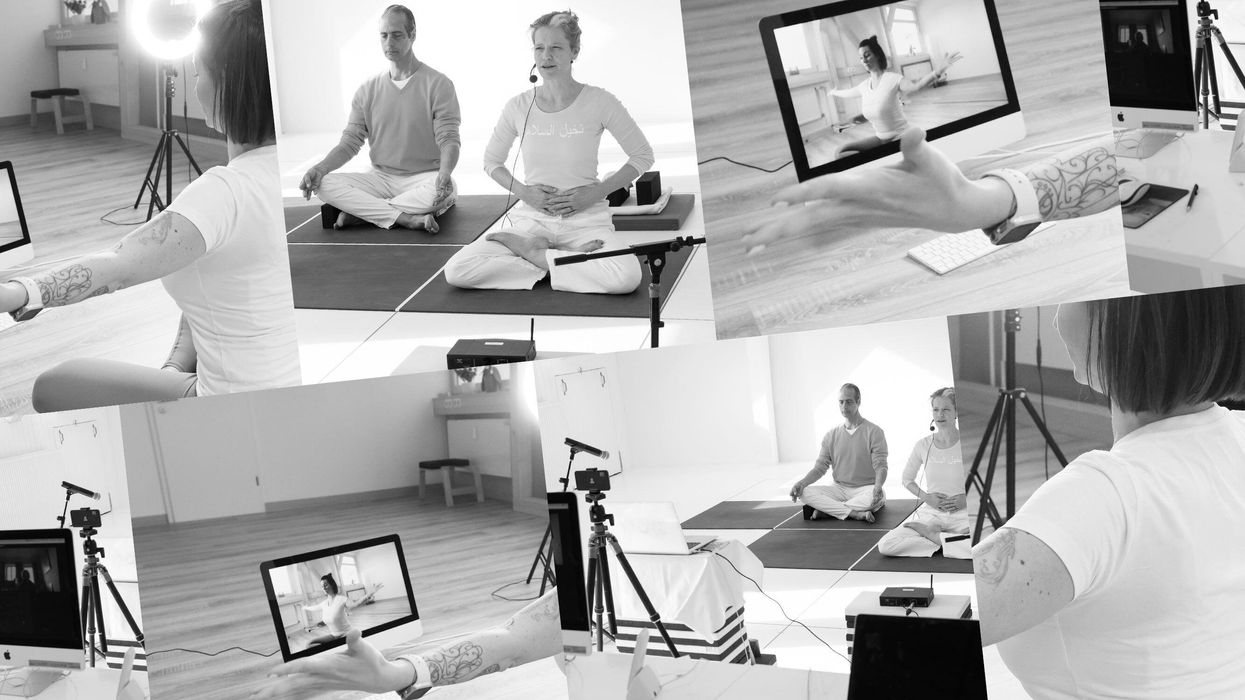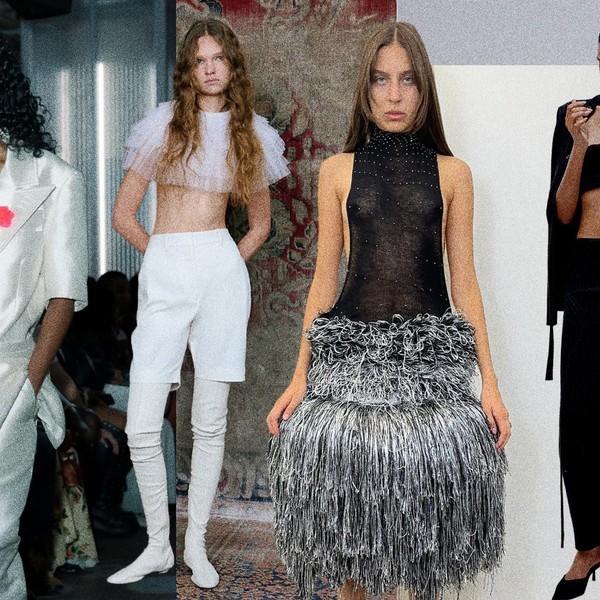Wellness is a Billion Dollar Industry in the US. So, Why Aren’t We Happier?
One writer takes a deep dive into the current state of wellness and the systems in place that ultimately define what true wellness means for everyone.

“Wellness is something I used to think was for other people,” says Tracy McCarter. Mothers aren’t really taught self-care. Nurses aren’t really taught self-care. Those were my identities. You get used to using yourself up for the benefit of others.” McCarter is also a domestic violence survivor. “For someone experiencing DV, too, you never get a day off from the stress of it. When it isn’t actively happening, you are anticipating in a really bad way when it might happen again.”
When McCarter acted in self-defense during a violent episode from her ex-husband, no one stepped in to understand what systemic failures had led her to be a domestic violence survivor. No one applauded her ability to protect herself. Few people asked how they could better support her healing journey and better support women like McCarter in the future. Instead, the criminal legal system charged McCarter with second-degree murder, causing her to lose her job and further traumatize someone who needed a helping hand more than handcuffs. Personal responsibility was held over her head and nuance was erased to ensure a jury wouldn’t see McCarter as the victim that she was. “As a nurse who has helped countless others fund and access care, now that it is my turn, it is denied to me,” she says. “I thought I could handle all things but I’ve learned just how ridiculous it is to think that way. I am human, and I deserve utmost care.”
McCarter isn’t alone. Everyday, people in this country are blamed for societal failures. America invests very little (relatively) into the policies that actually boost wellness for the most marginalized and vulnerable people in our communities. A report by the Center for American Progress reiterates that “for decades before and leading up to the emergence of COVID-19, U.S. public health infrastructure was both frail and fragmented due to chronic funding challenges. Public health funding is traditionally heavily siloed… [and] the responsibility to fund and conduct public health activities largely falls on state and local health departments.” Americans are encouraged to seek wellness through their spending habits: private insurance, spa trips, out-of-pocket therapy sessions, at-home gadgets, and more. We have a half a trillion dollar wellness industry in America alone, however the profit being made is not a reflection of perceived happiness. According to The Global Wellness Economy’s 2022 study, the U.S. has the largest wellness market in the world, nearly double the size of the second-largest market: China. In spite of that, happiness ratings are the lowest they’ve been in decades, according to the latest Gallup poll.
Elected officials boast about America being the richest and most powerful nation in the world while Black women die giving birth, people remain unhoused, parents are expected to get back to work immediately after birth, and crippling medical and student loan debt keep us from enjoying the fruits of our labor. The few times this country seems to address wellness, it’s either commodified, for big corporations to profit off of, or through violent policing of those whose backs have been forced against the wall: Women seeking abortions, working class people committing “survival crimes” like trespassing, petty theft, and sex work.
Licensed social worker Jasmine Fenton has been on the frontlines of this fight. “The lack of community resources available to marginalized communities creates inequitable access to wellness. The range of unmet needs for my clients—which includes medical, mental health, housing, and education—has a significant impact on Black and Brown communities, making wellness difficult to obtain,” she says. “As a provider, I am often exposed to individuals not having access to quality treatment as a result.” There is no culture of care in America and it shows.
The reality is that no amount of bath bombs and Pilates classes will fill the voids or repair the fissures that exist across our society. But we can achieve something far more radical than our imaginations have allowed us to believe is possible. We can shift the status quo and develop a country we are proud to be part of. Doing so would save lives, yes. But it would also save our sanity and remind us that survival is the bare minimum. Don’t we deserve to thrive?
True wellness would begin with the agency to make decisions for ourselves. That means, widespread access to voting, healthcare not being tied to one's employment, and bodily autonomy especially around family planning and reproductive rights. When someone is in survival mode, they can’t afford to think of much else beyond living to see another day. Millions of Americans exist in this state of fight or flight as they navigate divestment from the structures that could support their housing, health, and safety.
This has only been exacerbated since 2020 when the COVID-19 pandemic exposed just how little we are willing to do in order to keep one another safe. The official response and support systems undoubtedly prioritized the economy over human lives, putting disabled and immune compromised people at risk in a rushed attempt to shorten and end quarantining. People are quitting their jobs en masse, suicide rates have skyrocketed for marginalized groups, and overall morale is at an all time low. Many will suffer waiting for a vision of wellness that is more material than aspirational.
“People aren’t ok right now because they don’t have the time to take care of themselves,” says Odessa Kelly, an openly gay Black woman who running in Tennessee's 7th District. “So many of us are just scraping by, constantly working, trying to survive. Our failing social safety net has left working families behind.” Taylor K. Shaw, founder and CEO of BWA Studios, an animation studio, agrees and takes it a step further. “We are living in a time where the future is unclear. Our planet is reacting to our callous treatment of her. We are coming out of a pandemic but daily we face domestic tumult and international warfare. Our minds, bodies, and spirits are tired and it is difficult to process our place in the world when it can feel like little is in our control.”
While the status quo looks bleak, there truly is so much hope and opportunity to do and be more for one another, and to demand that our government does the same. We can collectively reject band-aid fixes and opt for something more robust and healing. Shaw has coined the phrase “generational leisure” as both an affirmation and call to action. She defines it as “an exploration of how we as Black people, especially Black women, invite and own acts of leisure into our routines. It is a pattern of relaxing into life that I believe we should pass on to future generations. When I center Black women with this idea of generational leisure, I hope to help lessen our load. When Black women can lessen our loads, it signals to others that they can do the same.”
T. Morgan Dixon, CEO of GirlTrek, the largest public health organization serving Black women and girls, makes it clear that wellness is our birthright, not a luxury: “In systems designed for us to be exploited, wellness is a revolutionary act.” GirlTrek has coined a five point Joy and Justice Agenda that directs the power of one million Black women toward five pillars: radical wellness, political power, cultural preservation, economic freedom, and environmental justice.
“Angela Davis told me to my face that she was a member of GirlTrek because she believes in the power of Black women walking together. I almost shouted,” Dixon recalls excitedly. “It was a dream come true to have such a legendary freedom fighter bless our blueprint.” GirlTrek centers Black women’s wellness but everyone benefits from these sorts of investments. This vision is one which can and should be adopted by people of all backgrounds.
What policies and cultural shifts are most urgently needed to create true community care? First, we have to help people out of survival mode. We have to eliminate the barriers to real wellness, and to do that people must have the time, space, and financial support. Proposals like universal healthcare, debt cancellation, parental leave, and a Green New Deal have the potential to ensure our planet, bodies, and loved ones are healthy and protected. From there, we can also champion wellness policies that speak to specific marginalized communities who are in desperate need of a lifebuoy. In some ways we have begun this work. In September 2021, the Biden administration made a historic billion dollar investment in the Black Maternal Health Momnibus Act which Representative Alma Adams, co-chair of the Black Maternal Health Caucus, described as a “game-changer for Black mothers as well as every parent bringing a child into the world.” Much needed funding has since, and will continue to be, funneled into expanding doula care, advancing maternal health research, and expanding bias training for health professionals, among other things. We should celebrate moves like this while fighting for even more.
Abolitionist organizer and bestselling author Mariame Kaba once said “everything worthwhile is done with other people.” This is absolutely true in the case of achieving wellness for all. With genuine political will and collective action, America can live up to its promise of being the land of the free and the home of the brave. What is braver than looking to our left and right, and fighting for our neighbor’s wellness just as much as our own? Odessa Kelly put it best: “Our communities deserve better, and the only way we’re going to get there is if we fight for it.”



